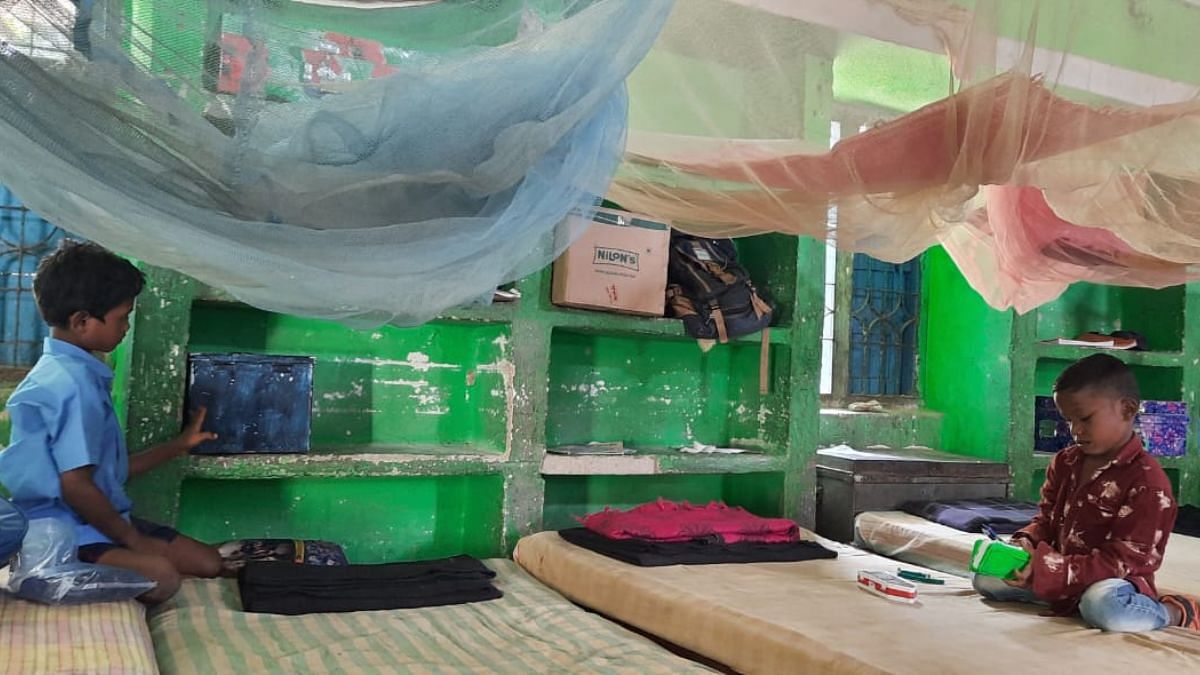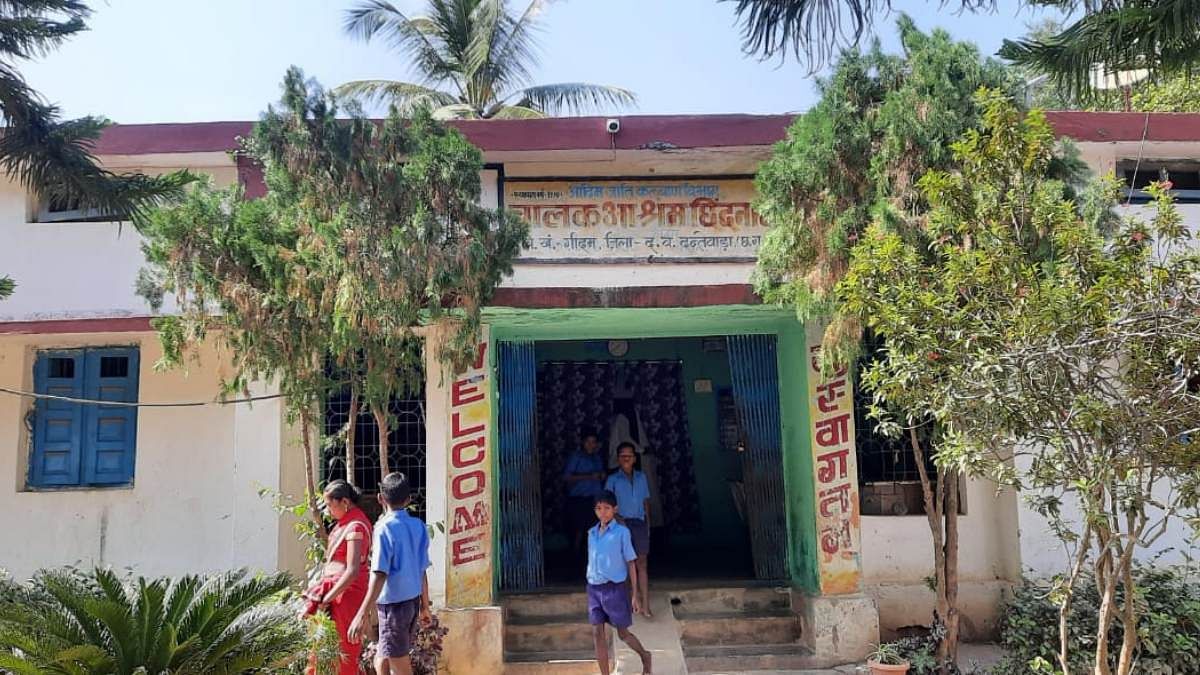Bijapur/Dantewada: Laxmi, Pintu, Maitu, and Sumitra all have similar memories of the day when their lives changed forever — first, of armed men walking into their homes, dragging their fathers and mothers away, and then, sounds of distant gunshots.
Their recollections of this may sometimes be hazy, but for these orphans, the wounds from Bastar’s raging conflict between the outlawed Communist Party of India (Maoist) and the Indian state are still fresh.
“I often feel sad when I look around and find my classmates, who happily live with their parents. There are moments when I feel lonely,” Laxmi Katlam, a student of class 12, told ThePrint. She was in pre-school when her parents were allegedly killed by Maoists and doesn’t remember much about the incident, she told ThePrint.
Laxmi knows one thing for sure though — she wants to join the armed forces.
“Since I was a little girl, I have dreamt of joining the armed forces. Aur Naxaliyo ko dur karna (and to drive away the Naxals),” she said. “I will sit for the NDA (National Defence Academy) exam, as well as the CUET (Common University Entrance Test).”
Laxmi is a student at Aastha Vidya Mandir, a residential school that opened in 2013 and is located near Dantewada’s Jaunga village. According to government data, there are over 200 such state-run balak and balika ashram schools in Chhattisgarh.
Aastha Vidya Mandir’s records show that the school has a total strength of 1,170 students — 589 of them being girls — and 85 percent of its students are from the Scheduled Tribes (ST).

Chhattisgarh, where Bastar is located, will vote for its 90-member assembly in two phases, on 7 and 17 November.
The state has been one of the hardest hit by Left Wing Extremism (LWE) — according to the Ministry of Home Affairs’ (MHA) response to an unstarred question in Lok Sabha this March, it accounted for a third of 1,132 “violent incidents perpetrated by Left Wing Extremists” between 2018 and 2022. Of the 168 security forces personnel and 335 civilians killed in such violence, 70-90 percent were reportedly from Chhattisgarh, the data showed.
In troubled areas like Bastar, schools such as Aastha Vidya Mandir offer much relief, particularly since children have frequently been enlisted in the conflict by both Maoists and the now-defunct Salwa Judum — a state-sponsored militia that was struck down by the Supreme Court in 2011.
Kumud Gupta, the school’s vice-principal, told ThePrint that it gets its funding from the state-owned National Mineral Development Corporation (NMDC) and offers both science and humanities to its higher classes.
“The number of students who opt for science and humanities are nearly equal. But among those who pick science, most prefer taking biology over math and sign up for our free coaching class, conducted with the help of the district administration, to sit for the NEET (National Eligibility cum Entrance Test). Many girls want to join nursing,” Gupta told ThePrint.
Also Read: Why IAS officer-turned-BJP candidate in Raigarh is a talking point in Naxal hotbed Dantewada, 600 km away
‘We had to flee’
Like Laxmi, Neelu Kunjam’s father was also a casualty of violence. But she doesn’t know who fired the killing shot — the Maoists, India’s counter-insurgency security forces, or the Salwa Judum.
“What I remember is that I was in Class 5 when it happened,” Neelu, another class 12 student, told ThePrint.
When she was in Class 10, she decided she would eventually take the civil service exams. “I want to become an IAS (Indian Administrative Service) officer. I’m not saying this under any pressure, or for the sake of saying it,” the 17-year-old said.
Sumitra Mandavi, a 14-year-old class 9 student, along with four of her siblings, was brought to the school when Maoists allegedly gunned down their father and many other members of her family. Sumitra was five when it happened, and, like Laxmi, doesn’t remember much of the incident.
“But I remember the villagers saying that they had dragged my father to the nearby river and killed him. Later, my mother also disappeared. We had to flee the village,” she said between long pauses.
Sumitra wants to study engineering. She and her siblings remain in the hostel during holidays — this is the only home they know now. Two of her brothers, Maitu (in class 9) and Pintu (class 10), say the farthest they have been from the school is the Chitrakote waterfall, 66 km away.
Unlike his sister, however, Maitu has little interest in studies. What this mischievous and cheerful boy of 14 loves most is cricket. Like most lovers of the gentlemen’s game, he is currently caught up with the ongoing World Cup, although he had to miss the last few matches because the television in his hostel stopped working, he told ThePrint, his voice full of regret.
“Mahendra Singh Dhoni is my favourite. I dream of becoming a cricketer one day,” he said.
Better education facilities, bigger dreams
In its written response to Lok Sabha on 19 March, 2013, the United Progressive Alliance (UPA) government said that the Left Wing Extremist groups, particularly the CPI (Maoist), recruit minors from the tribal belts from the states of Bihar, Chhattisgarh, Jharkhand, Maharashtra, and Odisha.
The idea behind this, according to the response, is to “wean them away from their rich traditional cultural moorings and indoctrinate them into Maoist ideology”.
“Such children are asked to perform multifarious tasks such as acting as informers, fighting with non-lethal weapons like sticks etc. Subsequently, after attaining the age of 12, they are branched into other children units like ‘Chaitanya Natya Manch’, ‘Sanghams’, ‘Jan Militia’ and ‘Dalams’,” the government response said.
The CPI (Maoist) provides training to children on how to handle weapons and on the use of different types of Improvised Explosive Devices (IEDs), it said. “The children recruited to ‘Jan Militia’ and ‘Dalams’ also participate in armed exchanges with the security forces where they are tactically pushed to the forefront,” the government said.
However, the Maoist footprint has since receded — according to the government’s latest figures, mentioned in Lok Sabha in March, LWE violence in the country had gone down by 77 percent in 2022, with affected districts being cut down from over 200 in the early 2000s to just 90.
The geographical spread of violence, too, has significantly reduced, with only 176 police stations in 45 districts reporting LWE violence in 2022 as compared to 465 police stations in 96 districts in 2010, the data showed.
This decline in violence also translates into more access to education for students like Rajman Kashyap, a resident of Pahurnar village in Dantewada district. The son of farmers, this 17-year-old, was admitted to a government residential school at Chhote Tumnar in Dantewada when he was still in class 5.
“After class 10, I chose the science stream. Now I want to take the NEET. I want to become a doctor,” Rajman, now a class 12 student, tells ThePrint.
Over at Hiranar village, 14-year-old Chandan Bhawani, a class 9 student, is working on improving his spoken English. Chandan’s home is in the neighbouring village, but he prefers staying at the school hostel. “English is my favourite subject,” he said in English, breaking into a wide grin.
(Edited by Uttara Ramaswamy)
Also Read: Roads, security camps & a bridge put Bastar villages on poll map. Maoists resist with pamphlets & bombs

